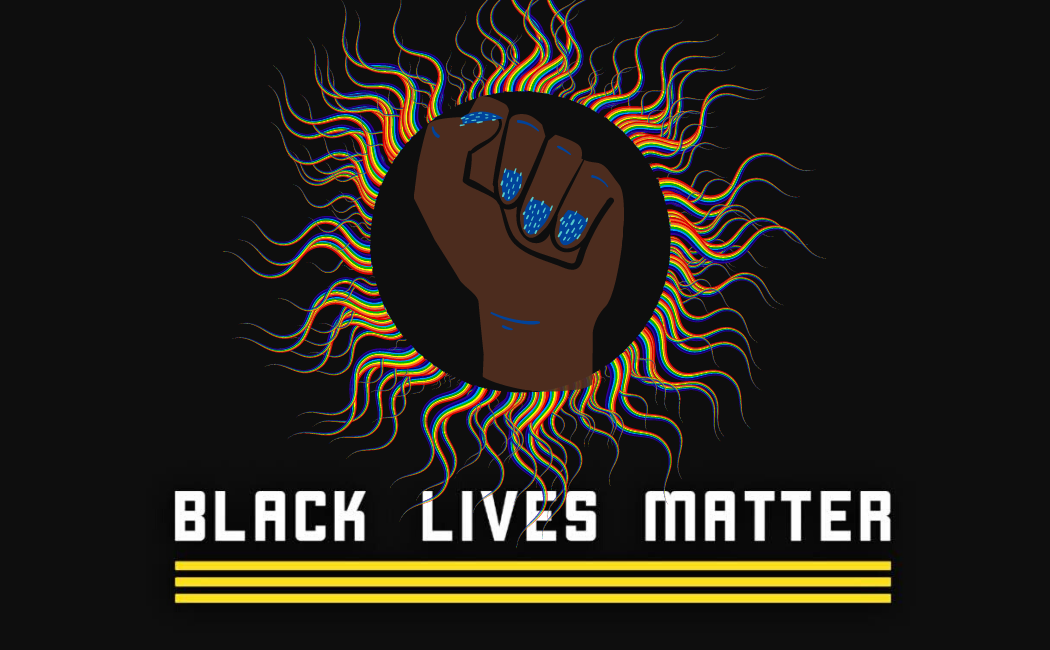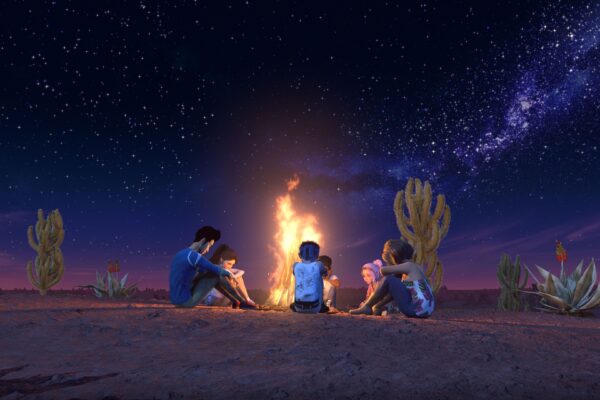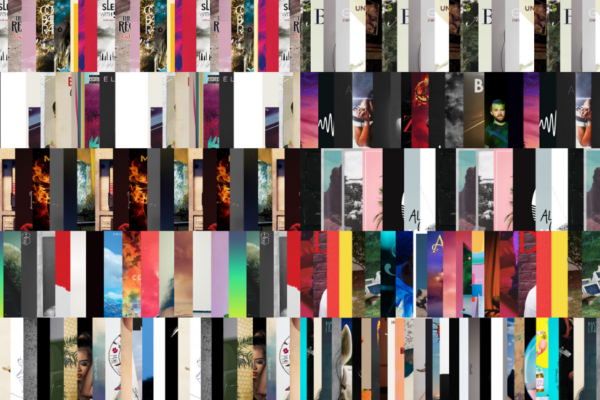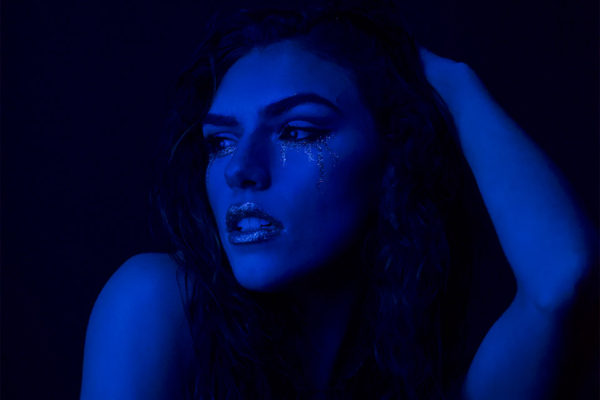Welcome to ‘Monday Musings’!
A new segment from Teenplicity, ‘Monday Musings’ will explore personal interests and thoughts in a multitude of ways. Whether it be through lists, fan interaction, or discussion posts, each week will offer a different topic and new perspective from Teenplicity about what is on our mind. The range of topics, just like our interests, will be vast. Some might be familiar, as it could highlight previous feature stars, while others will discuss uncharted subjects for Teenplicity. They might be fun posts with a silly twist or a more serious discussion about something that could concern you.
The goal is for Teenplicity to become more engaged and involved with our readers. The Teenplicity Team is made up of fans, just like you. Let us know what you care about – a show, a film, music, an event or aspect of your life. There are no limits for what can be explored in ‘Monday Musings’ or how we present it to you.
—
I’ve started and stopped this post so many times within the past few weeks as I struggled to figure out how to make this into a tangible thing. Part of it poured out into Teenplicity’s Blackout Tuesday statement, but I found myself (and continue finding myself even before now) trying to figure out what’s best said on my personal Twitter vs. on Teenplicity’s platform vs. my Insta story vs. real life vs. the group chat vs. an email to a legislator or a board member. I couldn’t figure out what this post needed to be, but I just felt like I needed it to be something to figure out where I’m at and what I’m thinking about.
At the same time, I find myself questioning the ethical nature regarding how Black writers (and artists in general) are expected to instantly air out our traumas (in beautiful, poignant, and specific language at that) whenever one of us is murdered. In a lot of ways, I think it’s necessary within ourselves to confront how we are coping. I also think it’s an act of community care to create things that help others within our community feel heard, feel seen, and feel like we have something to pour our emotions into. At the same time, something about others wanting and demanding us to do it publicly feels dehumanizing considering how often we’ve already told nonblack people to wake up and pull up. It doesn’t seem fair that we have to constantly explain this—and potentially at the risk of being denied opportunities because we’re only supposed to show gratitude—so that our nonblack peers can repost and echo our words for woke points and retweets and memes and hypothetical cookout invitations and their nonblack fans/friends commenting on their posts thanking them for saying something.
It was easier to talk about coronavirus because although there are actual officials and systems that we can say deliberately failed on protecting our public safety, the honest truth is that when coronavirus first showed its face and changed the way we looked at life, it was posed as this thing we all would get through together (ignoring the fact that we’re all on different playing fields and that more needed to be done than what was being said). The conversation around coronavirus (at least in the United States) has had this underlying tone of excitement for how the world will exist on the other side when we inevitably return back to “normal.” Because the plan has always been that we’d get through this and then it would be over and like the ending of a movie, we’d move on without much reflection or properly acknowledging the people we lost along the way. (And especially not acknowledging we never had to lose them in the first place.)
This time we’ve had in quarantine pretty much confirmed the ways that so many are overly obsessed with pinpointing how we can “return back to normal” and how to make the ways in which we’re living in an unideal state feel conventional. Far more obsessed, in fact, than questioning in the first place why we must settle for “normal” when better is possible. I mean this in relation to both public health crises at the forefront of conversation right now. Here’s the thing that has consistently rung true for me: whenever Black death floods our life–and subsequently our social media timelines–the way that I understand normal is rocked. This didn’t start with George Floyd. Not with Ahmaud Arbery. Not with Breonna Taylor or Tony McDade or Oluwatoyin Salau or Brayla Stone and all the names we’ve learned (and not learned) within the past few weeks because they’re no longer here with us due to the anti-black, transphobic, and misogynist actions of others. This didn’t start when I woke up the day after Christmas in 2015 to discover my former high school classmate Quintonio LeGrier and his neighbor Bettie Jones were murdered by police a few hours before. Although, this was jarring and something I’ve come to realize within these almost five years that I, my classmates, and their families, have yet to have the time and space to process especially living in the same city where we saw Laquan McDonald’s murder by police be covered up.
It’s maybe fair to say that Trayvon Martin or Mike Brown were some of the first times I realized it was something we could openly talk about. I would say Aiyana Jones, but what I sadly remember about her was hearing adults say it wasn’t right she didn’t get to grow up without acknowledging police were responsible for why. But, what I also remember was being a sophomore in high school when Trayvon was murdered and my chemistry teacher taking the time in class to criticize the way a Black woman was screaming into a megaphone because she was not speaking “proper English” in a protest video he had us watch. I also remember we were told that we needed to be more careful when we wore hoodies and went to the corner store. I do genuinely believe he and our other teachers told us this out of fear, the same way my mom, grandparents, and many other Black elders did/do because as a Black man this might have been what he was taught would save his life. But I don’t think he realized it placed the injustice on Black youth not presenting ourselves as more respectable instead of the fact that anti-blackness forces nonblack people to not respect us.
What I remember from Mike Brown (and Oscar Grant and Tamir Rice and, and, and…) was learning there was no such thing as the “perfect victim” and that it was preferred that we felt defeated more than enraged. And I remember that because I remember feeling both but only one of those emotions was palatable and I wasn’t sure what that meant for how to carry myself or talk about it. I remember feeling guilty whenever I wasn’t online because it meant I was missing something. I remember how this was a moment that taught me that Black death and anger could be made into a spectacle and then after doing nothing more than that, people would wipe their hands and say, “job well done.” Also that the answer to the deflecting question “Does it feel right to talk about this *right now*?” Was more often than not, “Yes.”
This then became even more crucial when we learned of Sandra Bland and realized that even in a call for justice led by Black women, Black women were still expected to wait for justice after cismen often to the point of erasure. Ignoring Black women, especially Black trans women, and Black trans men and nonbinary/gender-nonconforming people have been a repeating pattern in movements. So all this showed was that not much had changed. We were expected to be talked over and say nothing. To do the work but not want the credit. To humble ourselves in our relation to cismen and our other allies. Told we must watch our tone while we burn down the world and tread lightly around the ashes so as not to be in the way. To let our bodies become dehumanizing memes in the way Sandra’s did when debate sparked on if she was alive in her mugshot which led to the image being dissected and reposted as I remember one person saying “like people WANTED her to be dead in the photo” in the name of justice. Even when Black women questioned how this paid respect. And again, I think the last part was out of fear and hopelessness, not malicious intent, and the way media handled the footage of Eric Garner, Philando Castile, and Alton Sterling was also dehumanizing and driven by wanting a spectacle. But still, the impact has “Say Her Name” being co-opted to “Say His Name” while we still have to fight harder for Black women because there is such pushback to accept Blackness and womanhood coexisting in a person.
And somehow I could go on. Somehow there are many more names and memories of how I learned those names. Why I had to learn their names. Whose names we do and don’t learn and why. There are many videos and images that I’ve had to scroll past because I can’t get myself to watch their last moments here on this earth. Many whose stories have been documented in detail that I can only digest the SparkNotes version of because my heart can only take so much. The number of people we mourn who we have never even gotten the pleasure of meeting or getting to see grow up in many ways is uncountable. Our hearts break, our blood boils, and then we do what we can to continue, hoping the way we move memorializes them all somehow.
That I don’t have all the answers though I try bugs me. That there are many who have put their lives work into finding the answers and mobilizing the world just to be torn down by those who would rather not open their imagination up past the status quo bugs me. That every day I see someone else consider this to be a moment more than a movement when it has been a movement even before it had the name “Black Lives Matter” bugs me. That there are those who believe that capitalizing off of the movement is doing something good bugs me. I remind myself that although these bug and exhaust me, I cannot let them defeat me. Then I see what I need to get back up and I try to do it. Then, I try to reevaluate what I can best bring to the table–what I think I need from myself and what anyone that just so happens to see needs from me.
I want to write about more than Black pain. I want to be more than the things that cause me, that cause us, harm. I want the moments where I feel most okay and most joyous and the ways I put that into my work to not feel like they are at the expense of another because of survivor’s guilt. I know I’m not the only Black person that feels this way. I also know that a lot of us harbor guilt for feeling this.
I want to not wonder if I’m remarkable enough to be mourned. Remarkable enough to revolutionize over. I want our lives to not be reduced to lessons or wake up calls for some and not-quite-yet’s for others. I want a world where these aren’t even things that have to cross our minds because the world we live in does not require us to. Yet, I know that a world that offers this is a world that does not redefine or reimagine history the way it has currently and in the past. Which is to say that I think these feelings may remain as reminders for why we can’t go back. But Black people deserve unconditional healing, not settling for healing in a world filled with people still trying to hurt us. And that as a sentiment especially goes out to dark-skinned Black people, to Black trans and cis women/girls, to Black trans men/boys, to Black youth, to Black LGBTQ+ people, to Black nonbinary people, to Black people experiencing homelessness, to Black people who have disabilities, to Black people who are fat, to pregnant and parenting Black people, to Black survivors, to Black people who do not fit the aesthetic of Blackness that is seen as profitable in the mainstream, etc.
To any Black youth reading this where this moment in our lives is your first time realizing you can openly grapple/cope with our reality, who are realizing that how history class taught racism is a lie, who are realizing that the cards you were dealt are far more different than you thought, who are overwhelmed because of the expectation for Black youth to surrender their adolescence in return to being subject to praise and scrutiny, I really hope we don’t fail you. I really hope that effective change comes out of all of this and that we get to see it. I want for awareness to lead to action and for those actions to be meaningful not good PR. For people to realize that Black resilience can be uplifted, but that overall, our goal is for our lifetimes to not be spent recovering from one anti-black obstacle after another in order to make it through.
Black youth have always played an integral part in the fight for civil rights. I see it, literally, every day here in Chicago. I see it, again, literally, every day on social media. Black youth are the vanguard because they need to be. Because otherwise what else is there for their means of survival? But as much as Black youth continue to display what leadership, creativity, and community look like, the fact that we have another generation of Black youth where Black innocence was snatched away for them to do someone else’s work and bear that burden is unfair. Black youth being told that they don’t understand their own lives and experiences when they call for defunding and abolishing the police the way our organizers and activists across generations have/continue to do is demeaning. Not understanding at this point why Black people at all ages would be fed up for this long is condescending. The answer always continues to be to do better. But also to look at the framework Black organizers have laid out for decades–and continue laying out and modernizing–and implement them. To prioritize envisioning and enacting a new world instead of policing. To give Black people the opportunity to rest in humanity while we are here. That’s where I’m at. That’s what I’m thinking about.
~~~
Resources:
An incomplete list of Chicago organizations to support/follow in order to stay up to date: GoodKidsMadCity, Assata’s Daughters, Brave Space Alliance, The Chicago Alliance, and BLMChicago.
Illinois Caucus for Adolescent Health’s Protest Guide Instagram highlight
A helpful BLM carrd linking ways to get involve and keep going.
—
Did you like ‘Monday Musings’? If so, you’re in luck! Each week, Teenplicity will feature a new ‘Monday Musings’ post about things we are looking forward to, topics close to our hearts, or suggestions from readers!




